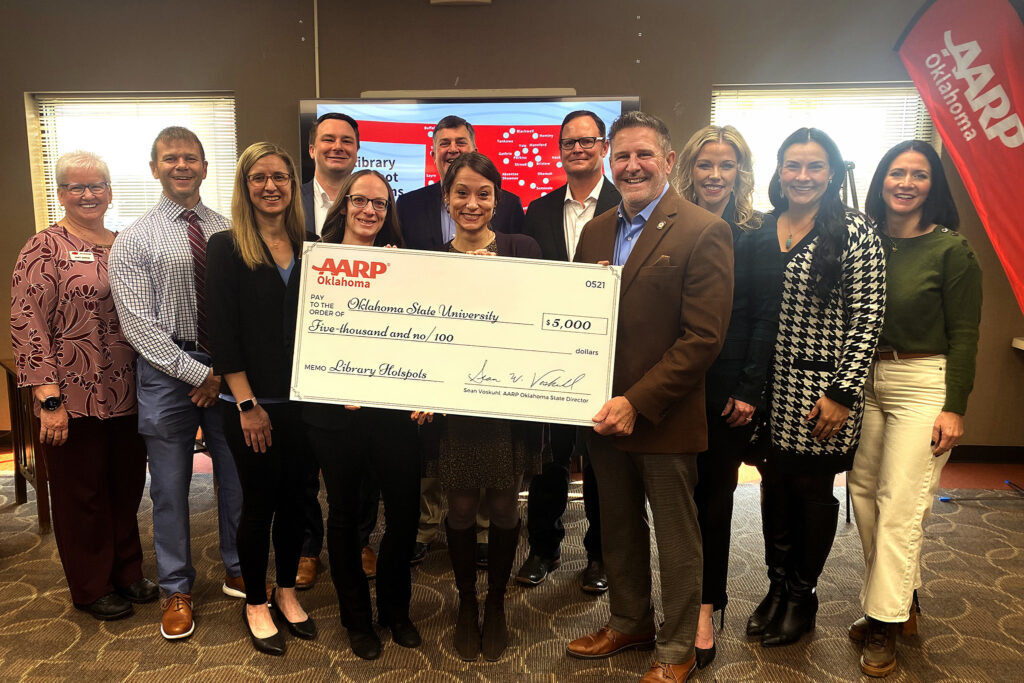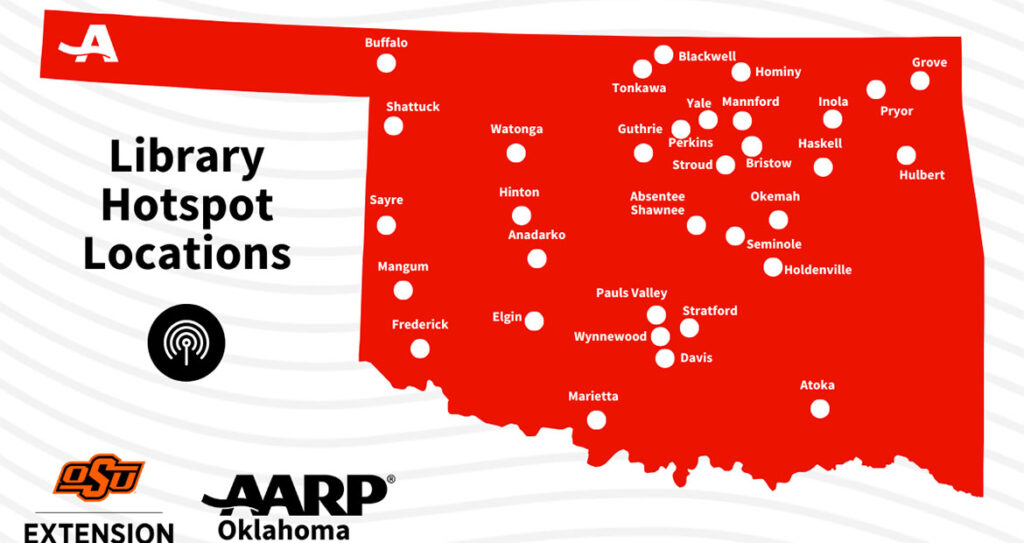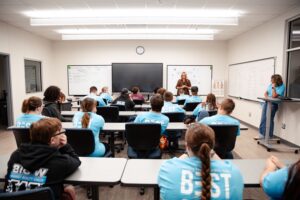Oklahoma State University Extension and AARP Oklahoma are celebrating their continued partnership of the state’s library hotspot program.
Representatives of both organizations met at the Bristow Public Library on Dec. 3 to announce a $5,000 grant for the community libraries in Bristow, Shattuck and Yale. The funding provides hotspot internet devices local patrons can check out to connect with family and friends, access health care resources, pursue educational opportunities and maintain employment.
Since 2018, OSU Extension and AARP Oklahoma have teamed up to award rural libraries vital funding for mobile internet devices. Data shows each partnering library loans out their hotspots to more than 100 local households each year. The program now includes 33 library participants, helping an estimated 3,900 Oklahomans annually.

“When we choose the libraries, we’re trying to find not only small towns but also communities that are struggling with connectivity,” said Brian Whitacre, a professor in the Oklahoma State University Department of Agricultural Economics and a rural development specialist for OSU Extension. “Statewide, an average 10% of households don’t have any kind of internet connection, but for this year’s project, the numbers in Bristow, Shattuck and Yale are double that – over 20% of households have no kind of connectivity.”
Whitacre emphasized the need for rural broadband support after elimination of the federal Affordable Connectivity Program in June 2024. The low-income subsidy was created in 2021 to help households pay for an internet connection.
“This hits home when you think about everything we do that requires the internet,” Whitacre said. “Many low-income residents who were getting a monthly subsidy to pay for broadband access with that program were left with no option but to drop their internet service. Our library hotspot program can really help those households.”

Heather Hutto, executive director of the Bristow Public Library, shared testimonials of library patrons who have recently used the new hotspots. She said digital inclusivity initiatives like these and adult tech education have a ripple effect in communities.
“It’s one thing to give somebody a hotspot and think we’re helping that one person or their family, but sometimes the effects of these hotspots and their connectivity are very profound and affect so many more people than we realize,” Hutto said.
Sean Voskuhl, AARP Oklahoma state director, said the program’s success has caught the attention of other state AARP organizations in Alaska, Maine, South Dakota and Tennessee who are interested in establishing a similar initiative.
“High-speed internet is extremely important for people of all ages,” he said. “Internet access for social connection, finding a job and staying connected to the community has so many health and economic benefits.”
In addition to representatives from OSU Extension, AARP Oklahoma and the Oklahoma Department of Libraries, other key stakeholders in attendance at the library hotspot announcement included Oklahoma State Rep. and speaker-elect Kyle Hilbert, Oklahoma Sen. Todd Gollihare and field representatives from the office of Sen. Markwayne Mullin.
Learn more about Oklahoma’s library hotspot program and efforts to improve rural broadband service by contacting Whitacre at brian.whitacre@okstate.edu.





